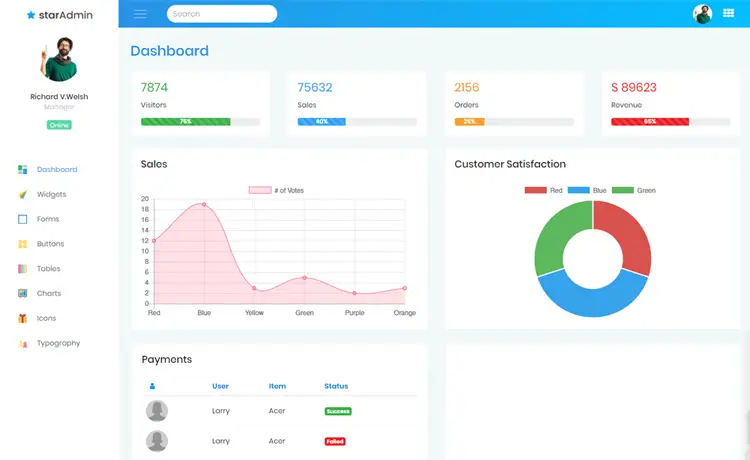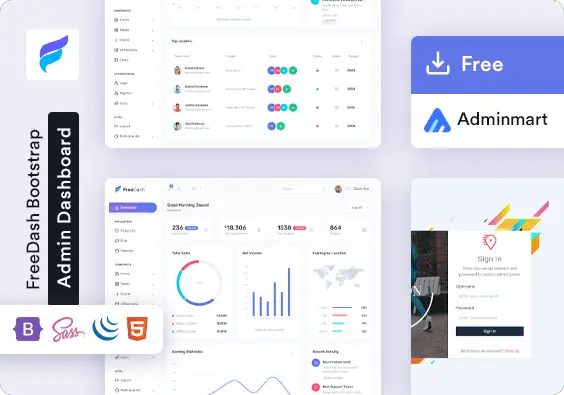How to download file using JavaScript
By Tan Lee Published on Oct 22, 2024 382
Downloading a File from a URL
If you want to download a file from a specific URL, you can create a downloadFile method like this:
function downloadFile(url, filename) {
const a = document.createElement('a');
a.href = url;
a.download = filename; // Specify the file name
a.setAttribute('target', '_blank');
a.click(); // Trigger the download
URL.revokeObjectURL(href);
}
// Usage
downloadFile('https://example.com/file.pdf', 'your_filename.pdf');Using Blob to download file
A Blob (Binary Large Object) is a data type used to store binary data. When you use the `fetch` API to request data, the response can be converted to a Blob type, allowing you to handle binary data effectively.
If you want to download data generated in the browser, you can create a Blob:
html
<button>download file with blob</button>
Javascript
function downloadFile(url, fileName) {
fetch(url, { method: 'get', mode: 'no-cors', referrerPolicy: 'no-referrer' })
.then(res => res.blob())
.then(res => {
const a = document.createElement('a');
a.setAttribute('download', fileName);
const href = URL.createObjectURL(res);
a.href = href;
a.setAttribute('target', '_blank');
a.click();
URL.revokeObjectURL(href);
});
};
//Usage
document.querySelector('button').onclick =function () {
downloadFile('https://example.com/file.pdf', 'file.pdf');
}We will use fetch API to download the script file, then transform the data to a blob type.
Finally, Convert the blob object to a string by using URL.createObjectURL().
You need to create an <a> element to download the string.
The download functionality only works for same-origin URLs. If the file is from a different origin, the browser will open it instead of downloading it.
function downloadFile(data, filename) {
const blob = new Blob([data], { type: 'text/plain' }); // Change MIME type as needed
const url = URL.createObjectURL(blob);
const a = document.createElement('a');
a.href = url;
a.download = filename;
document.body.appendChild(a);
a.click();
document.body.removeChild(a);
URL.revokeObjectURL(url); // Clean up the URL
}
Usage
const textData = "Hello, Javascript !"; downloadBlob(textData, 'example.txt');
If you are downloading files from a different origin, ensure that the server supports CORS.
Downloading a file and converting it to Blob format can help bypass cross-domain restrictions in browsers. However, for large files, the download may take longer, and it's important to provide user prompts to avoid being perceived as a bug.
- How to use sweetalert2
- How to Pass string parameter in an onclick function
- How to format number with commas and decimal in Javascript
- What does 'use strict;' means in Javascript
- How to detect if caps lock is pressed in Javascript
- How to create a Custom Event in Javascript
- How to Check if an Object Has a Property Properly in JavaScript
- How to convert an Uint8Array to string in Javascript





